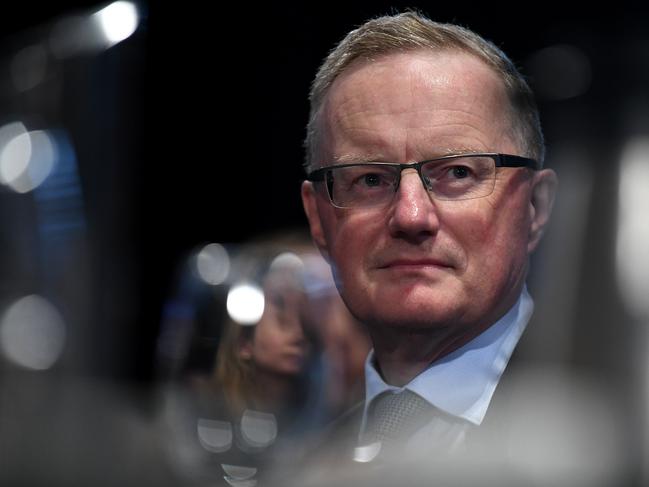RBA warns of weakest population growth since WWI
For years, booming population growth underpinned a robust Aussie economy. Now that growth is all but grinding to a halt, the head of the Reserve Bank has warned.
Business
Don't miss out on the headlines from Business. Followed categories will be added to My News.
AUSTRALIA’S population growth is likely to slump to its lowest level since World War I in the fallout from the coronavirus pandemic, the Reserve Bank has warned.
Speaking at a business dinner on Monday night, RBA governor Philip Lowe said the national population was expected to grow just 0.2 per cent over the year to next June.
That would be the slowest rate of growth since 1916, when many Australians were leaving the country to fight in WWI, he said.
It compares with an average growth rate of 1.5 per cent over the past 20 years.
Dr Lowe said the fast rate of growth in the population over recent decades had been “a major factor shaping our economy”.
It had underpinned Australia’s relatively strong growth in gross domestic product, he said.

“It also slowed the ageing of the population, given that the new arrivals have been fairly young,” Dr Lowe said.
“The large number of students coming to Australia has also boosted our education sector.
“And the effects of fast population growth have also been felt in our housing market and in pressure on some of our infrastructure. So the effects have been widespread.”
If Australia had lower population growth, “we are going to have slower growth in GDP”, he said.
His comments follow a collapse in migration earlier this year as the pandemic up-ended the global travel market.
Official statistics released last week show that, in September, 4320 people arrived in Australia to stay permanently or for the long term.
That compares with more than 58,000 in the same month last year.
Just 80 international students arrived in Australia in September, down from 45,300 in the same month last year.
More broadly, Dr Lowe said Australia’s economy this year had “performed better than many others in challenging circumstances”.
Australians “have reacted sensibly and worked together to contain the virus”, he said, speaking at an event hosted by the Committee for Economic Development of Australia.
“So, even though we have had our challenges and setbacks, we do have a lot to be thankful for.
“Notwithstanding this, a year like the one we are living through will inevitably leave some marks on our economy and on economic policy, including on monetary policy.”
The RBA had been left with little choice but to cut interest rates aggressively – rather than try to buck a global “gravitational pull” – in order to help the job market, Dr Lowe said.
If rates were higher, the Australian dollar would be higher, meaning it would be “harder to make the needed progress on jobs”, he said.
“Over the medium term, I do expect to see a time when Australia’s strong economic conditions once again justify higher interest rates,” Dr Lowe said.
“But today, during a global pandemic when a lot of people have lost their jobs and many businesses are struggling, is not the time for that.”
The central bank expects the jobless rate to rise from 6.9 per cent now to “a little below 8 per cent” in coming months before falling gradually.
Dr Lowe also reiterated forecasts the RBA published earlier this month, projecting that Australia will effectively lose two years of gains in economic growth as a consequence of the pandemic.
After falling heavily in the second quarter this year, GDP is forecast to shrink about 4 per cent across 2020.
It is not expected to return to its level from the end of 2019 until the end of 2021.
Originally published as RBA warns of weakest population growth since WWI


